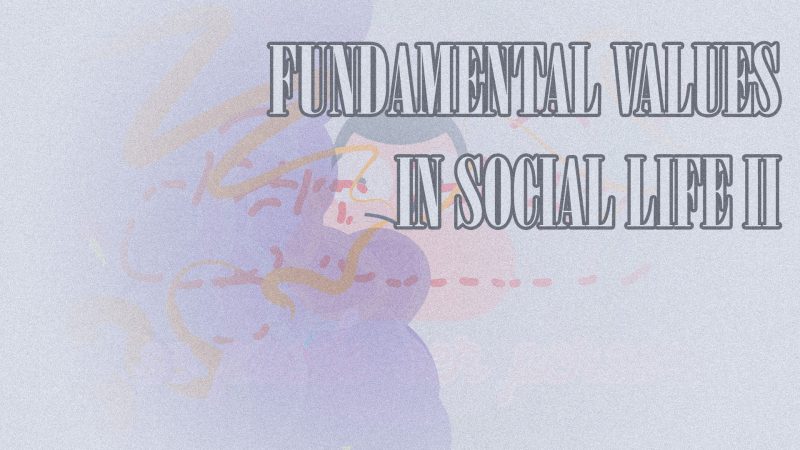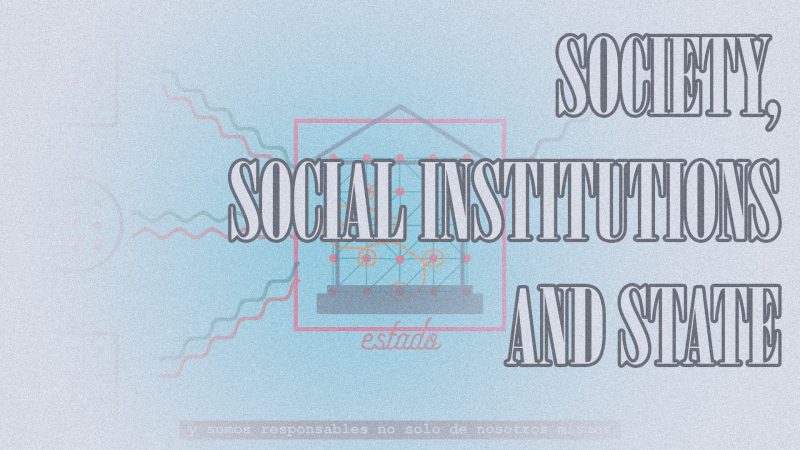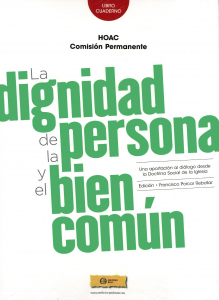Participation is the essential and central element of democracy. There is no true democracy without participation. Every democracy has to be participatory. The participation in political life is an expression of what human being is, of its dignity and responsibility for others and for the common good. Characteristics of human dignity are that the person is a subject of social life, never a passive object or an instrument. For that reason is so important to participate.
Social Doctrine presents us the participation as a right and also as a duty of people.
Participation is a right because it lets human being to express as an active subject, to be a protagonist. And it is a duty because of its expression as the responsibility to the others and to the social life. With participation, we collaborate to build a social life more righteous and more human. We also develop our own building as people.
Sometimes, we think that voting is the only way to participate in the social and political life. But this is no true. Voting is important but insufficient. Participation must extend to every scope of social life. From participation in the family, the work, the enterprise, the school or the neighborhood to participation in taking decisions locally and generally.
Participation is a personal and social needing which demands three things.
Liberty and responsibility: Wanting to participate. If there is a blurry awareness about the importance of participation, that is not produced.
Channels favoring participation: social organizations allowing us to participate and institutional channels for participating in taking decisions.
Dignified life conditions. If we have never-ending work timetables, when have we time to participate?
In our society, those three factors are weak and there are a low number of channels to participate. But, above everything, the dominant culture is anti-participatory because it builds a way of feeling, thinking and acting too individualistic and hedonistic, giving a low value to social life. That weakens the value of responsibility to the others and to the community.
We need to fuel the awareness about the importance of participation.
DSI sentence
Participation in community life is one of the pillars of all democratic orders and one of the major guarantees of the permanence of the democratic system. It is therefore clearly evident that every democracy must be participative.
Social Doctrine Compendium n.190
Act
How would you explain the importance of participation in political life?
What would you say to a person thinking that participation is not important?
Download the PDF attached
Previous video:
Next video:
You Might also like
-
Fundamental values in social life 2
A social life without ethic values is like a flower withering. Social Doctrine considers four values as central and fundamentals for life and political action: Truth, justice, liberty and, carrying all of them, love, the political charity. To live those values leads us to self-fulfillment and to a more human social coexistence.
-
Society, social institutions and state
People don’t live isolated. We need each other and we are all really responsible for all. That is why it’s something natural to relate with other people and to create institutions to live socially. Because of that, social life is composed of different institutions of all kind:
-
Church and political community
Did you ever heard the sentence “The church shouldn’t talk about those subjects”? Let’s see how the Social Doctrine understands the relationship between the Catholic Church and the political community. If we want a real democracy, it must receive and welcome the plurality of worldviews, ideologies and value systems that exist in society.




